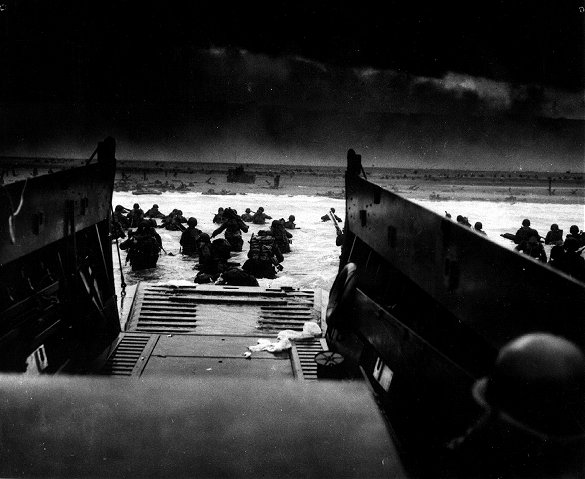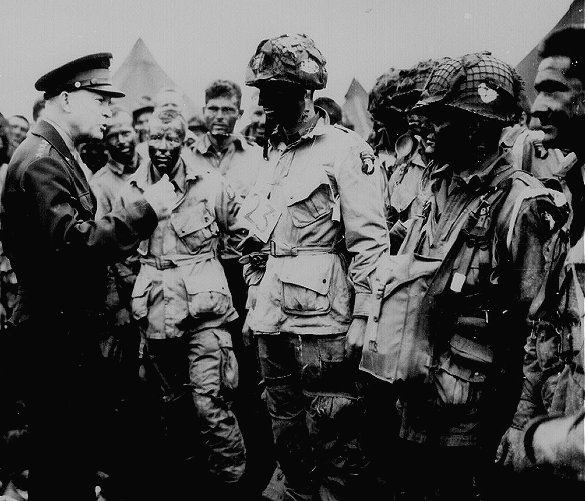From the New York web log four years ago:

On 12 February 1944, George Marshall, Chief Of Staff of the U. S. Armed Forces, sent the following order to Dwight Eisenhower:
“You will enter the continent of Europe and, in conjunction with the other United Nations, undertake operations aimed at the heart of Germany and the destruction of her armed forces.”
There were other parts to the order, mostly concerned with Eisenhower's chain of command, but the above represents the only formal operational directive he was ever given — essentially “invade Europe and win the war.” Marshall's disinclination to micro-manage Eisenhower's campaign resulted from no lack of capacity or ambition on his part. He had hoped that when the time came FDR would give him operational command of the invasion of Europe — which would be the greatest combined operation, the greatest amphibious assault in the history of warfare. In fact, FDR did offer the command to Marshall but said that he would prefer having Marshall at his side in Washington for the war's duration. Marshall chose to honor that preference, which more or less explains why Eisenhower became President and is well known today, while Marshall did not and is not.

Eisenhower's campaign in Europe may well be remembered as the most consequential feat of arms in the history of our civilization, second only perhaps to the holding action fought at Thermopylae by 300 Spartans and assorted allies under the command of Leonidas in 480 B. C. The Spartans had decided to sacrifice themselves in a hopeless stand against the invading Persian forces, which may have numbered a quarter of a million men, as an example to the squabbling city states of Greece, to inspire them to unite to drive out Xerxes and his apparently invincible hordes. It worked.
If Persia had destroyed Greek civilization and its proto-democracies, if Hitler had been able to establish and maintain dominion over Europe, the world would be a far darker place today than it already is.

Before the battle at Thermopylae, the Spartans, who knew full well that they were all going to die, asked for a memorial to be erected over their graves with these words carved on it — “Go tell the Spartans that we lie dead here, in obedience to our laws.” The G. I.s who lie dead beneath the pristine white crosses of the cemetery above Omaha Beach did not ask for any such memorial to be erected or any such message to be sent. If they had, it would probably have been something just as simple — “Tell the folks back home that we got the job done.”

At the time, the message was clear enough. When Anne Frank, still in hiding in Amsterdam, heard the news about D-Day she wrote in her diary, “This is it! The invasion has begun! I might be able to go back to school in September.” Before that could happen she was discovered and taken off to a concentration camp, where she suffered a wretched death from typhus , but a lot of teenage boys not much older than she was died to give her that moment of wild hope, precious almost beyond imagining.
2:50 pm, 6 June 2004, NYC
